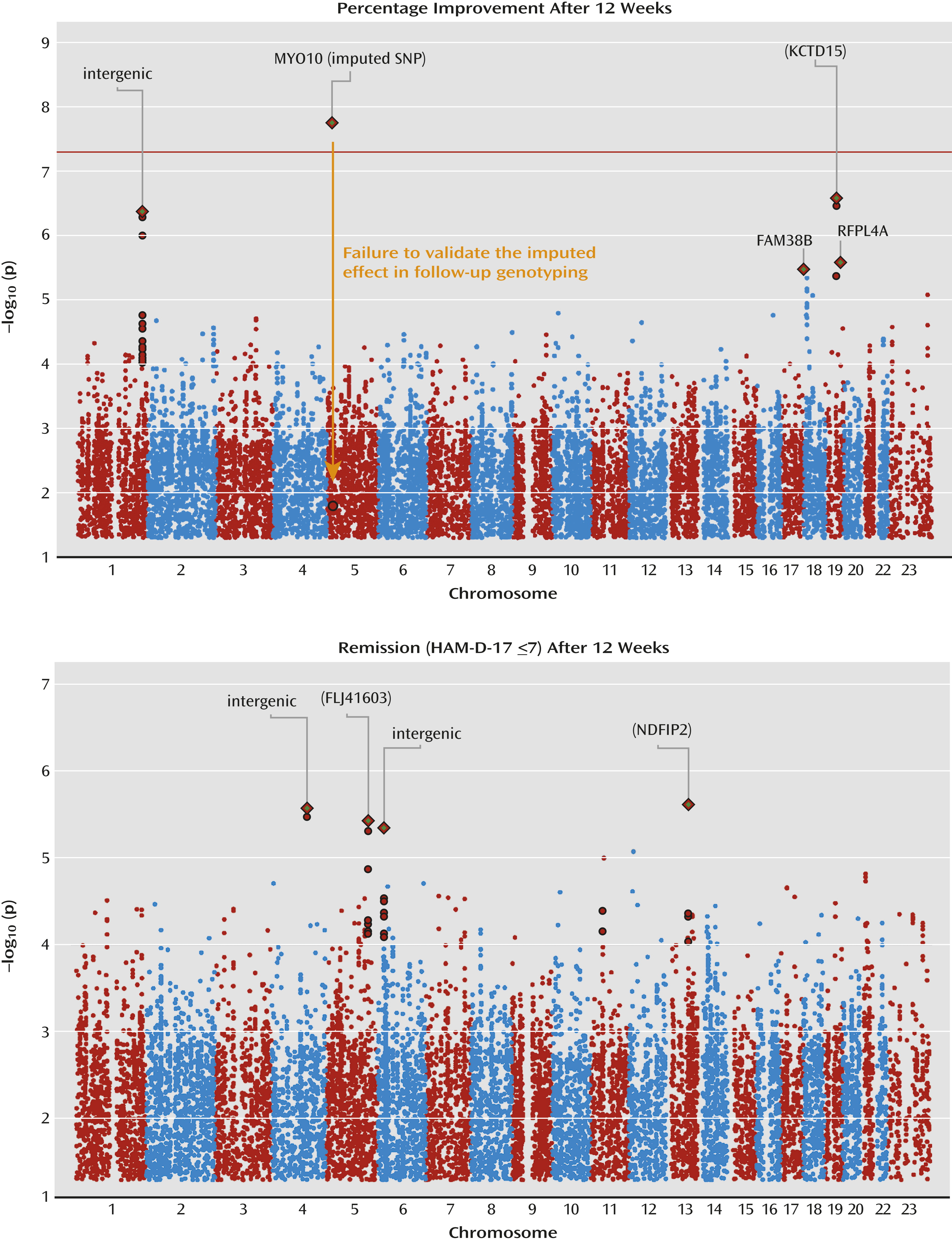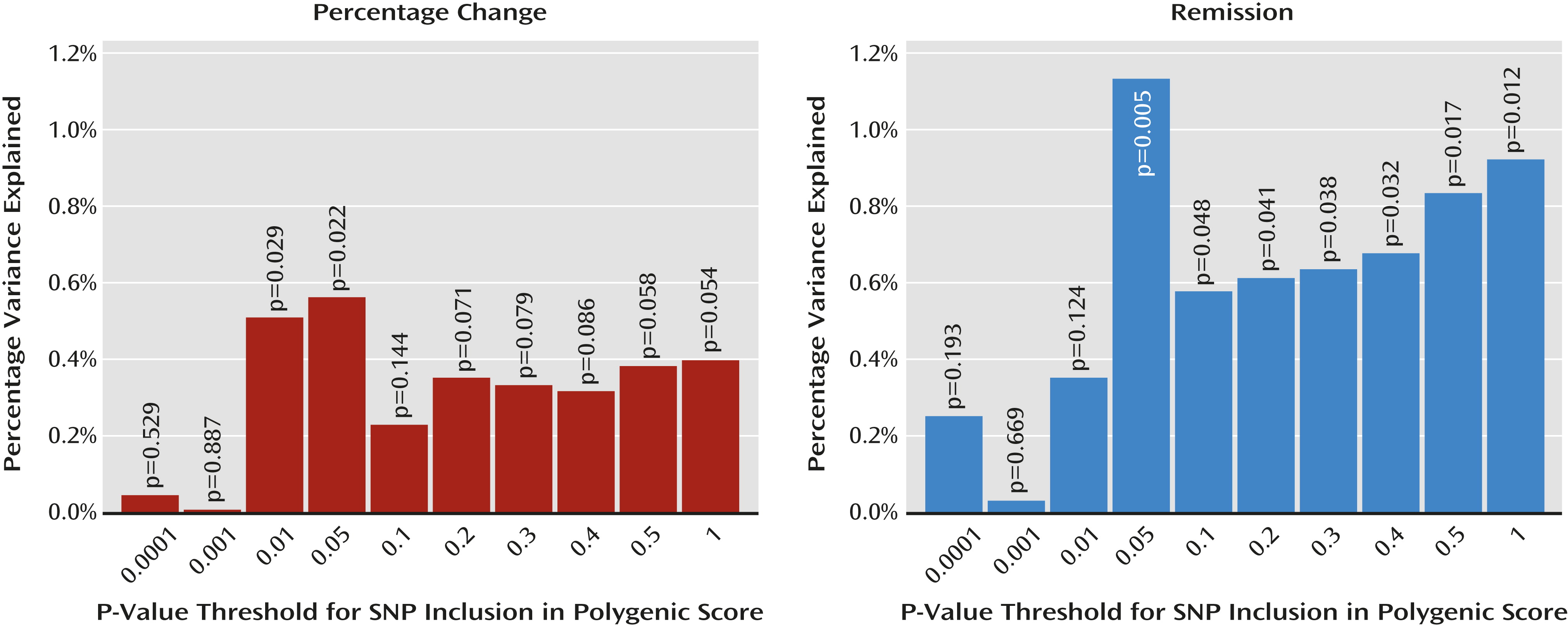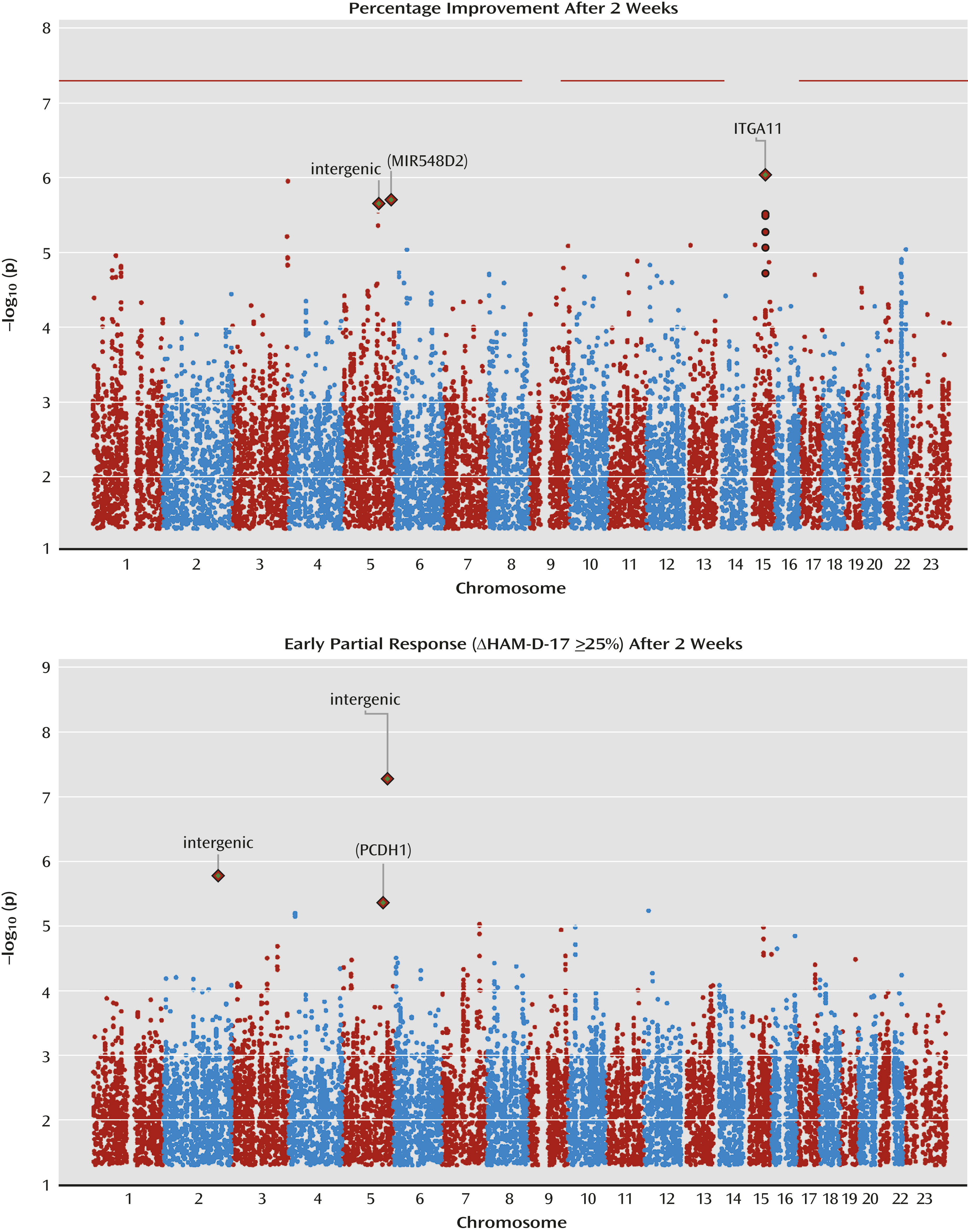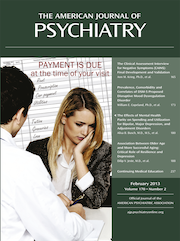Common Genetic Variation and Antidepressant Efficacy in Major Depressive Disorder: A Meta-Analysis of Three Genome-Wide Pharmacogenetic Studies
Abstract
Objective
Method
Results
Conclusions
Method
Samples
| Characteristic | GENDEP | MARS | STAR*D (Level 1) | |||
|---|---|---|---|---|---|---|
| N | % | N | % | N | % | |
| Participants included in meta-analysis | 672 | 604 | 980 | |||
| Participants treated with selective serotonin reuptake inhibitors (SSRIs) | 374 | 56 | NAb | 980 | 100 | |
| Female | 429 | 64 | 326 | 54 | 580 | 59 |
| Valid outcomes for at least 4 weeks of treatment | 597 | 89 | 532 | 88 | 943 | 96 |
| Remission by week 12 | 270 | 46 | 253 | 47 | 330 | 35 |
| Partial response at week 2 | 256 | 38 | 400 | 67 | 268 | 27 |
| Mean | SD | Mean | SD | Mean | SD | |
| Age (years) | 41.9 | 11.7 | 48.4 | 14.0 | 43.6 | 13.2 |
| Baseline 17-item Hamilton Depression Rating Scale score | 22.4 | 4.7 | 25.1 | 5.6 | 21.3 | 5.1 |
| Percentage change on primary measure over first 2 weeks of treatment | 21.1 | 22.3 | 35.0 | 26.4 | 23.9 | 23.6 |
| Percentage change on primary measure over 12 weeks of treatment | 55.5 | 30.7 | 63.7 | 27.8 | 56.5 | 28.1 |
Common Inclusion Criteria
Phenotype Definition
Genotyping and Imputation
Statistical Analysis and Power
Results
Meta-Analyses
Primary outcomes: improvement and remission with up to 12 weeks of antidepressant treatment in the entire sample


Secondary outcomes: early improvement and partial response after 2 weeks of treatment in the entire sample

12-week outcomes with SSRIs
2-week outcomes with SSRIs
Discussion
Footnotes
Supplementary Material
- Download
- 74.00 KB
- Download
- 69.50 KB
- Download
- 78.00 KB
- Download
- 62.00 KB
- Download
- 86.50 KB
- Download
- 82.50 KB
- Download
- 88.00 KB
- Download
- 75.50 KB
- View/Download
- 823.50 KB
References
Information & Authors
Information
Published In
History
Authors
Competing Interests
Funding Information
Metrics & Citations
Metrics
Citations
Export Citations
If you have the appropriate software installed, you can download article citation data to the citation manager of your choice. Simply select your manager software from the list below and click Download.
For more information or tips please see 'Downloading to a citation manager' in the Help menu.
View Options
View options
PDF/EPUB
View PDF/EPUBLogin options
Already a subscriber? Access your subscription through your login credentials or your institution for full access to this article.
Personal login Institutional Login Open Athens loginNot a subscriber?
PsychiatryOnline subscription options offer access to the DSM-5-TR® library, books, journals, CME, and patient resources. This all-in-one virtual library provides psychiatrists and mental health professionals with key resources for diagnosis, treatment, research, and professional development.
Need more help? PsychiatryOnline Customer Service may be reached by emailing [email protected] or by calling 800-368-5777 (in the U.S.) or 703-907-7322 (outside the U.S.).

